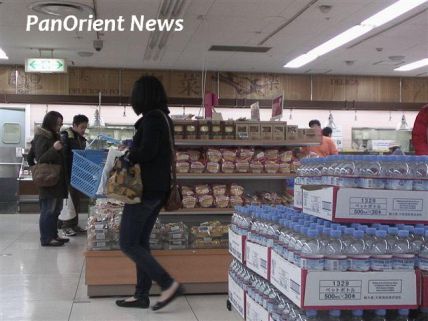|
|
Environment
Excessive Radiation Exposure Discovered Outside Fukushima 30-Kilometer Zone
Thursday, March 24, 2011

Tokyo- (PanOrient News) Japanese Nuclear Safety Commission warned Wednesday of the possibility of excessive exposure to radiation in areas more than 30 kilometers of the damaged nuclear power plant in Fukushima Prefecture, northeastern Japan.
The commission said that a person even outside the 30-kilometer zone could have an exposure of 100 millisieverts or more from radioactive iodine to thyroid gland if staying outside since an accident hit the plant on March 12, .
Such a level of exposure is believed to cause health hazards, according to experts.
Residents living within 20 kilometers to 30 kilometers of the Fukushima No. 1 nuclear power plant have been advised to stay indoors.
Japanese media quoted Haruki Madarame, chief of the commission, as saying at a news conference that it is unnecessary to expand the stay-indoors zone because of the commission's findings.
Earlier in the same day, the Tokyo metropolitan government warned that infants should not drink tap water in Tokyo's 23 wards and five of its suburban cities as radioactive iodine exceeding the limit for them was detected in water at a purification plant.
The amount of the substance was 210 becquerels per 1 kilogram of water at the plant in the Kanamachi district of Katsushika Ward, which serves the cities of Musashino, Mitaka, Machida, Tama and Inagi as well as central Tokyo, above the limit of 100 becquerels for infants but below 300 becquerels for older people, according to the metropolitan government.
Radiation has so far contaminated more leafy vegetables on Wednesday, nearly two weeks after a quake and the following tsunami hit the nuclear plant.Prime Minister Naoto Kan warned consumers across the country against eating a wide range of leafy vegetables harvested in Fukushima Prefecture, including broccoli, cabbage, cauliflower and spinach.
Additionally, Japanese authorities have detected a concentration of a radioactive substance 1,600 times higher than normal in soil at a village, 40 kilometers away from the troubled nuclear power plant in Fukushima Prefecture.
The disaster task force in Fukushima composed of the central and local governments surveyed radioactive substances in soil about 5 centimeters below the surface at 6 locations around the plant from last Friday through Tuesday, Japanese media reported.
The results announced on Wednesday show that 163,000 becquerels of radioactive cesium-137 per kilogram of soil has been detected in Iitate Village, about 40 kilometers northwest of the plant.
Gakushuin University Professor Yasuyuki Muramatsu, an expert on radiation in the environment, told NHK that normal levels of radioactive cesium-137 in soil are around 100 becquerels at most. The professor says he was surprised at the extremely high reading, which is 1,630 times higher than normal levels.
He warns that since radioactive cesium remains in the environment for about 30 years it could affect agricultural products for a long time. He is calling on the government to collect detailed data and come up with ways to deal with the situation.
Photo: Shoppers at a Tokyo supermarket rush to buy bottled water
PanOrient News
© PanOrient News All Rights Reserved.
|
|

